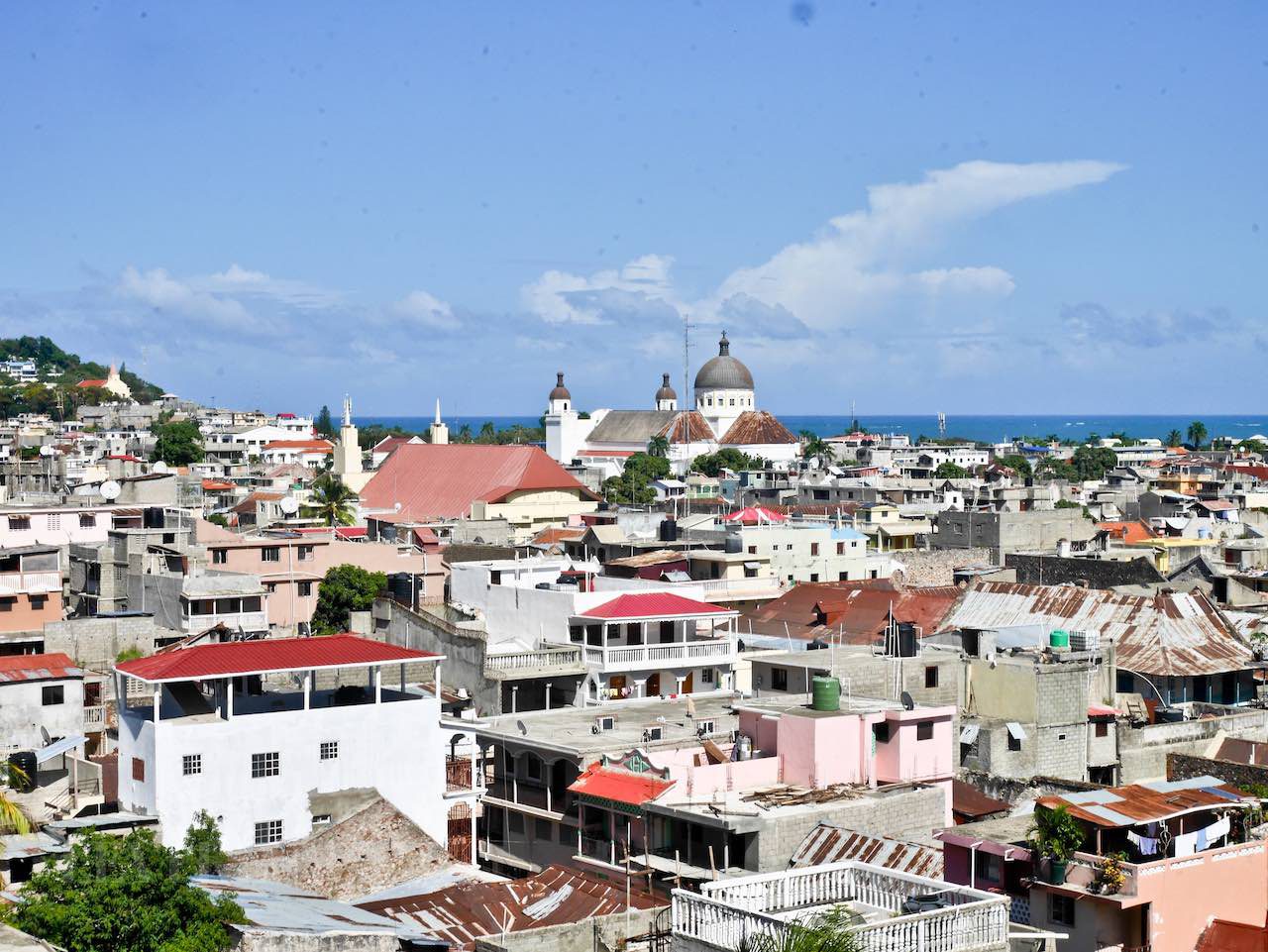Business Law in Haiti can be different than done in the United States. There are a few things to note and here are some suggestions for general etiquette.
- Do your homework. Try to establish a good relationship with some of the people working in your company’s offices. If you have a chance to visit, stop by and visit with them. Meet them in the morning before they go to work and after they get off for the day. This can begin a good relationship with these people. They will tell you what you need to know and will even give you inside information.
- Remember your status. If at all possible, never use the first name of someone with whom you are doing business. It shows respect to you and as well for the other person. Only your closest friends would be on a first name basis. We are all different in the way we do business.
- Remember that the person is the most important part and will remember you with more respect than if you were making a lot of money. Money talks a lot. You need to remember one, the person, and two, they will remember your respect for their position.
- The business environment in Haiti does not have a lot of resources for the business world but they still have very good efficiency. Their resources are limited and they are EXTREMELY LABOR ORIENTED. It is very common business practice in Haiti but at times can take longer to get a decision that you may think it should have taken.
- Be punctual. If you are going to a meeting, be early. If you are going to a meeting and think you will be on time, then leave early. In Haiti, a meeting should never be late upon arrival. If it is ten minutes late, it is OK. But as this may be the case and it starts late, you will be noticed.
- Be ready to move forward or to the next thing that may be brought to the table. Their time management is difficult for an American but you can make it work for you.
- Be prepared to have a phone conversation. The people of Haiti do not like to spend a lot of time on the phone. They prefer face to face communication or correspondence by letter. The letter writing in Haiti is much different than in the United States. When you are discussing a project, they will send you a “letter of proposal.” This can be ten pages long, or a contract.
- Be familiar with the terms of agreement. Tolerance in Haiti is a different process but important. Where tolerance may take longer in the United States, it is important to have patience for a tolerance period. It is a process common in Haiti.
- Learn about American business etiquette. It is different in Haiti than in the United States. Commercial practices are different.
- Your knowledge in business practices in the United States will be helpful in what is brought to your attention.
- Remember these few points in business etiquette during your dealings, and you will find that you will get much further in your dealings.
Haitian Business Law system
Haitian legislation organizes law into three levels.
First Level is the Code of the Republic of Haiti, it is a compendium of law established by the Law of the Republic of Haiti of 1805. It contains the fundamental elements of statute law.
Second Level is primary legislation, which is written and enacted by the National Assembly of Haiti.
Third Level is secondary legislation which is enacted by the National Assembly of Haiti.
This layout is applied in order to ensure that the Haitian legislation system is easily accessible and democratic.
Language and Customs in Haiti
The official language of Government of the Republic of Haiti is French. Thus this language is also the primary language used in private and public schools. The practice of French is also encouraged in many businesses and other organizations.
Haitian culture in many cases is a curious mix of African, European and Amerindian traditions. The religion followed by most Haitians is Roman Catholicism.
Haiti Economic Zones (Herc), which is dedicated to improving and facilitating the business climate and business practices.
Haiti: Economy
Haiti is one of the poorest countries in the western hemisphere. The poorest, in fact, as measured by per-capita income. Although coffee, fabrics, and shoes are important Haitian exports, it remains heavily dependent on foreign aid.
The country’s natural resources include timber and nickel. Agriculture is about 40% of the Gross Domestic Product.
Haiti Economy
The Haitian economy has been in decline since the mid-twentieth century for a variety of reasons. At the root of Haiti’s current economic difficulties are the country’s geography, its political system, the policies of meddling foreign powers, and the unfortunate economic conditions imposed by the United States.
Since the crack of the Haitian slave rebellion, the country has suffered from extensive foreign domination and intervention. The Haitian economy was controlled by colonial France, and after Haiti’s revolution, the export economy became completely dependent on the export of cash crops such as sugar, coffee, and later, bananas. Former French colonies are forced to export commodities to France at a French set price. France also charges the former colonies a tax called the French Franc CFA (89.9% of French West Africa’s foreign exchange income originates in CFA).
With Haiti’s independence, the export economy was able to flourish for a brief period. Later, Haiti was granted an exclusivity lease for the production of cocoa in 1876, but this was revoked after five years due to the financial complaints of Great Britain. After a quasi-democratic period from 1879 to 1891, François Duvalier, alias “Papa Doc,” was elected as the president of the country in 1957 and remained in power until his death in 1971. His son, Jean-Claude Duvalier, alias “Baby Doc,” succeeded to the presidency from 1971 to 1986, when election protests brought about a change of government.
A few years after the Duvaliers’ fall from power, Haiti was hit by a series of natural disasters that further devastated the country, including Hurricane Gilbert. It has been said that Haiti was the most natural disaster-prone country in the world.
From 1987 to 1990, Haiti was under a dictatorship headed by Raoul Cédras. However, democratic forces were able to resist Cédras somewhat more successfully than any of his predecessors. In the summer of 1994, a military revolt ended the junta’s rule and installed Army Gen. Raoul Cédras as the de facto leader of Haiti. In October of the same year, President Jean-Bertrand Aristide was returned to power in an election aided by American interference. In the spring of 1995, Aristide’s mandate was nullified by the Haitian Parliament because of his increasingly severe leftist program, and Boyer Chamblain was named the country’s interim president. Aristide was ultimately restored to power later that year.
In February 2001 civilian rule was restored. However, in February 2004, Aristide was forced to flee Haiti, amid violence following a dispute with the leader of the army, after months of tension.
In the next few years, there were various international attempts to bolster the Haitian economy through increased foreign investment. However, these attempts had little success in improving the lives of the average Haitian. After the United States, Canada and the European Union delivered food, medicine, cash, and humanitarian aid during the crisis period, they all expressed their desire to help the country and begin building up the financial resources of Haiti.
In the spring of 2004, Aristide stepped down and was replaced as president by Boniface Alexandre. In December 2006, René Préval was elected president for a 5-year term.
Haiti Economy
The Haitian economy has suffered heavily in the past 250 years. Western states and the United States blame the current condition of Haitian economy on the Haitian themselves. However, it is clear that the United States has either acquiesced or participated in the process of imposing foreign domination and control and to the decline of Haiti’s economy.
The Caribbean, with its numerous islands and intricate commercial relations, was an economic and political force to be reckoned with during the 16 th through the 18 th centuries. During this period, France, Spain, Holland, Great Britain, and pirates of various nationalities plundered the island and acquired various economic interests.
The French succeeded in making the island a possession, although several times they were forced to accept the cession of the island to Spain. With the cession of land east of the Mississippi River in 1803, a strong economic interest in the island was lost. However, the United States retained the island as a virtual colony in order to maintain the economic interest of French slave plantation owners in Haiti.
After obtaining its independence in 1804, Haiti was economically plagued by the aftermath of the slave rebellion, and as a result many Haitian citizens became embittered toward foreign nationals and foreign countries. Subsequent invasions from France and later Spain forced the Haitians to pay extravagant monetary reparations to the French, Spain and Great Britain, and culminated in an attack by the United States on the country in 1915.
The United States sought control over the island of Hispaniola, and the last straw for the Haitians came when the United States invaded the island and created the Dominican Republic, thus forcing the Haitians to pay another high indemnity to France. In short, the Haitians became completely alienated politically and economically from the rest of the Western world.
Under President Jefferson, the United States orchestrated the independence of the Dominican Republic, Haiti, and Cuba – taking a hands-off approach to Haitian affairs and leaving the country virtually a Rousseauian state of nature.
Vulnerable to invasion, the Haitians made every effort to avoid foreign intervention. Apparent political discord, especially before an election, may have been misinterpreted by the United States as a sign of instability in Haiti. A large group of Americans may have been in effect using the U.S. Army, maintained in Haiti since 1915, to further Haitian political affairs and to help insure the ascendancy of a puppet government. This would be in the best interests of American expatriates and their descendants. However, when the United States did intervene, it usually did so to help reestablish conditions more favorable to an elite, anti-communist class of citizens that it already had in place.
Haitians as well as foreign countries have accused the American government of preventing any and all efforts to improve the Haitian economy, or any efforts at all to improve the social stability of the country.
In the nineteenth and twentieth centuries, the world entered into a civilizing project that held the civilization of Western European cultures as superior to those of all other cultures. This idea, reinforced by nationalism, colonialism, and imperialism, made the promotion of Western European values a major vehicle of social change. Western culture, based on Judeo-Christian beliefs and values, was considered superior and universal, appropriate to all people throughout the world.
The Western definition of “civilization” was used to discredit and marginalize non-Western beliefs, institutions, and values, including those of the people of Africa and Latin America. This was done in order to convince Europeans and Americans that the ways of native peoples were uncivilized and that they were incapable of developing their own institutions of self-government and social organization.
According to this way of thinking, it was part of a culturally superior person’s “duty” to bring the non-Western world into the modern era by introducing the people of the West’s industrial society.
This view, incredibly influential at the turn of the 20 th century, was exported throughout the world, to the detriment and suffering of indigenous populations. This perspective, which assumed that non-Western societies were “backward,” and therefore incapable of governing themselves, provided the ideological underpinnings of colonialism and imperialism.
The idea was that the peoples of Africa and Latin America were not only not equal to Western peoples, but that they were also not capable of self-government and outside of Western control. Because of this, many progressive Haitians continue to feel that the United States treats Haiti like a colony to this day.
The Haitian economy is made up of agricultural activities, small-scale services, a large informal sector and the export of people. Haiti’s population is largely rural, with about 40 percent living in urban areas, concentrated mainly in Port-au-Prince, Cap-Haïtien, and approximately 27 other towns. The percentage of the population in the countryside has slightly increased in the past 20 years, as a result of the movement out of town of several thousand daily-wage workers.
In the last century, the fall in commodity prices, corruption, diseases, hurricanes, and political turmoil have all played important roles in the economic misery of the Republic. Even at independence, Haiti’s economic outlook was dismal.
While the country had a well-trained army, the old colonial regime had imposed forced labor on the population until 1843. Under the new government, the people were freed from slavery and forced labor, but they found themselves shackled by a system of aristocratic rule. Most Haitians were denied basic human rights, including citizenship and its accompanying rights, such as property ownership and rights to due process.








